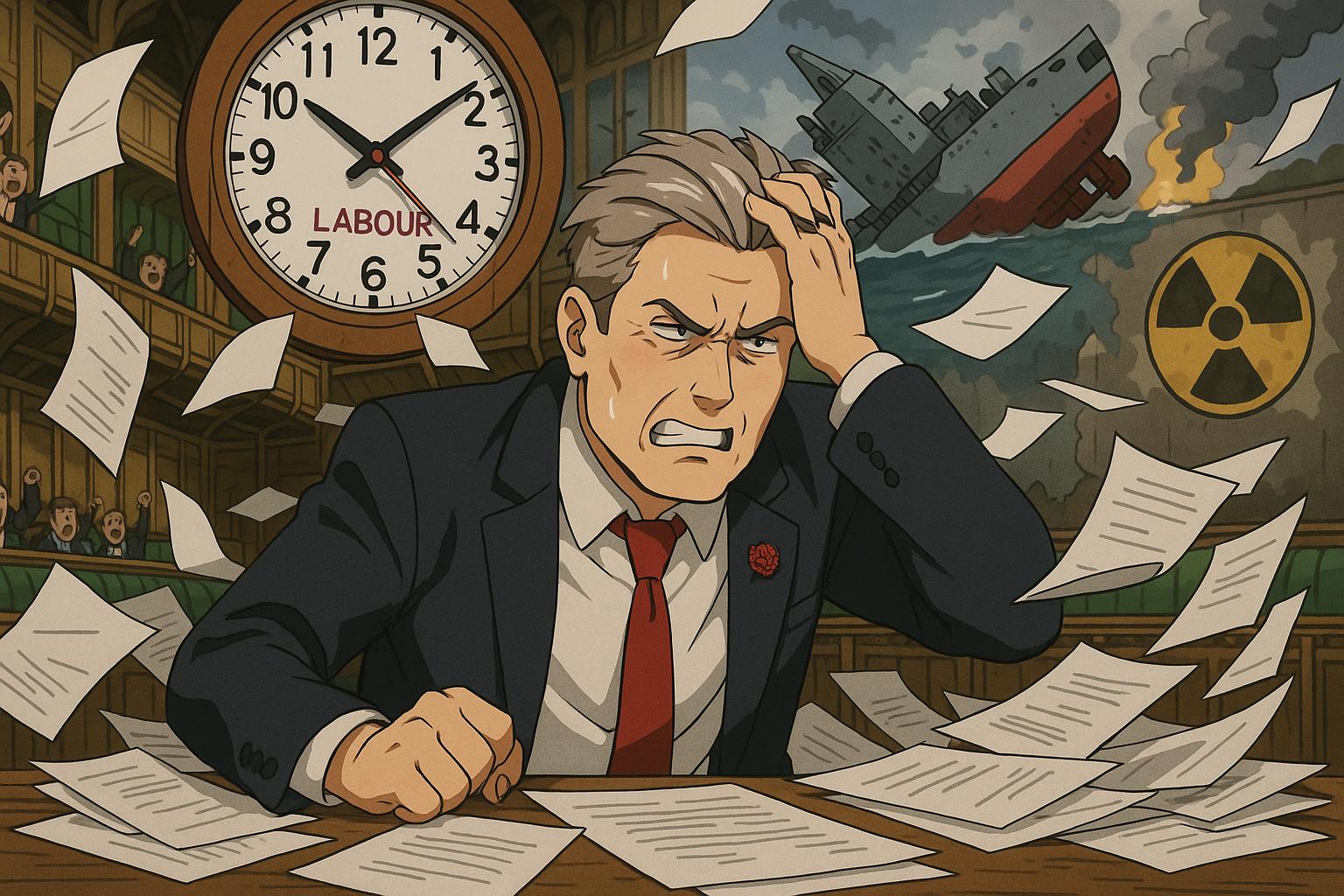The recent days in Westminster have been marked by a series of blunders surrounding the presentation of Labour's defence plans, which were marred by delays and miscommunication. This fiasco unfolded just as North Korea faced embarrassment of its own, with the capsizing of a warship during its launch. The incident drew sharp criticism from Kim Jong Un, who labelled it a “criminal act,” promising accountability for the officials involved. As North Korea's naval ambitions falter, so too does the confidence in the UK's defence posture, seemingly floundering under the weight of its own bureaucratic missteps.
Labour's highly anticipated defence review became the centrepiece of a chaotic parliamentary session, where MPs expressed outrage at being denied advance access to the document before Defence Secretary John Healey's address. Speaker Sir Lindsay Hoyle was quick to voice the frustration of backbenchers, resulting in delays that intensified the scrutiny on Healey's presentation. Amidst this turmoil, the contents of the review—leaked to the media prior to the Commons session—undermined any hopes of a coordinated unveiling and raised questions about the government’s nuclear policy, which some MPs believed might breach international accords.
Defence Secretary Healey's assertions of increased military readiness and the government's commitment to upholding the Trident nuclear deterrent provoked pointed challenges from several quarters. Labour leader Sir Keir Starmer’s attempt to project competence was compromised by a seemingly confused atmosphere, particularly when he spoke before shipyard workers at Govan, where he struggled to provide clarity on the timeline for increasing defence spending to the promised 3% of GDP. With external pressures mounting, including calls from defence chiefs for a budget rise to 2.65%, the Treasury’s insistence on maintaining a cap of 2.3% has further complicated Labour's commitments. Although Starmer aims to raise spending to 2.5% of GDP, the lack of a clear path forward has led to an air of uncertainty about how the party plans to strengthen its defence policy.
The broader implications of these events touch on a significant shift in the Liberal Democrats' stance regarding nuclear weapons. The party, previously staunchly opposed to nuclear armament, now appears to be more accepting, provided that these capabilities align with certain environmental standards—suggesting a future where strategic discussions may include unconventional energy sources such as “lentil gas.” This evolving narrative among the parties reflects a bigger picture of shifting geopolitical pressures and the ever-complex balancing act of maintaining credible defence strategies while addressing emerging environmental concerns.
As MPs navigated the fallout from these revelations, the Speaker's quips and the colourful critiques demonstrated a growing frustration with the lack of coherence in Labour's messaging. Speakers in the chamber highlighted the absurdity of the situation, pointing to the seemingly chaotic state of UK defence policy at a time when coherence is paramount. The image of ministers grappling with internal dissent and confusion only served to highlight the disarray and the pressing need for robust leadership moving forward.
In the context of these challenges, the Labour government is facing not only the repercussions of its public announcements but also the potential repercussions from voters sceptical of its handling of national security. The meeting of catastrophic failures of North Korea's defence initiatives and the UK's troubled parliamentary process underscores a critical juncture for both nations. It is clear that the realm of defence, characterized by both political missteps and external pressures, remains a complex battleground for truth, accountability, and future preparedness.
📌 Reference Map:
- Paragraph 1 – [1], [2]
- Paragraph 2 – [1], [3], [5]
- Paragraph 3 – [4], [5], [6]
- Paragraph 4 – [3], [4], [7]
- Paragraph 5 – [1], [5], [6]
Source: Noah Wire Services
